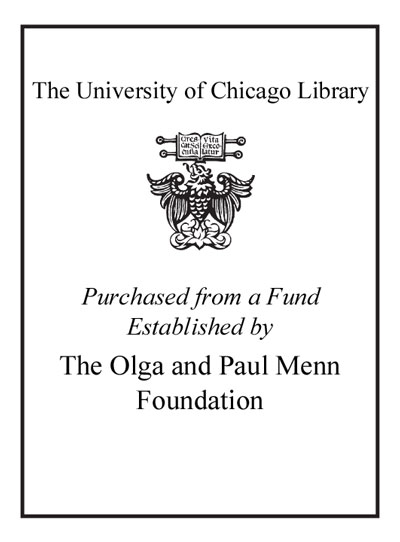Gaspar van Weerbeke : new perspectives on his life and music /
Saved in:
| Imprint: | Turnhout, Belgium : Brepols, [2019] ©2019 |
|---|---|
| Description: | 332 pages : illustrations (some color), music ; 29 cm. |
| Language: | English |
| Series: | Collection "Epitome musical," 2565-8166 Collection "Epitome musical." |
| Subject: | |
| Format: | Music score Print Book |
| URL for this record: | http://pi.lib.uchicago.edu/1001/cat/bib/12023682 |
Table of Contents:
- Seven reasons for Italy : Gaspar van Weerbeke's career between Flanders, Milan, and Rome / Klaus Pietschmann
- Weerbeke in Milan : court and colleagues / Paul A. Merkley
- Belle promesse e facti nulla : a letter to Weerbeke and the treatment of singers in Florence and Milan / Sean Gallagher
- Gaspar depicted? : Leonardo's portrait of a musician / Laure Fagnart
- Gaspar van Weerbeke as a member of the Burgundian Chapel / Grantley McDonald
- Gaspar van Weerbeke and France : the poetic witness of Guillaume Crétin / Jeannette DiBernardo Jones
- "Under the radar" or "Caught in the crossfire? : the music of Gaspar van Weerbeke and its reception history / Fabrice Fitch
- Weerbeke's stylistic repertoire : new insights from the Marian motets / Agnese Pavanello
- The cycle as modular composition : the Motetti missales of Gaspar van Weerbeke / Fabrice Fitch
- Another "most laudable competition"? : Gaspar, Josquin, Regis, and the Virgin in distress / Wolfgang Fuhrmann
- A new mass and its implications for Gaspar's late mass style / Paul Kolb
- Petrucci's Gaspar : sources, editing, and reception / Andrea Lindmayr-Brandl
- Gaspar and Japart : the secular works, with particular reference to Basevi 2442 and a word about Fridolin Sicher / David Fallows
- Caught in the web of texts : the chanson family bon vin/bon temps and the disputed identity of "Gaspart" / Carlo Bosi
- La stangetta reconsidered : Weerbeke, Isaac, and the late fifteenth-century tricinium / Eric Jas.

